MercoPress. South Atlantic News Agency
Tag: Brazilian economy
-
Tuesday, August 21st 2018 - 08:32 UTC
Brazilian Real loses ground to the dollar following the latest opinion poll
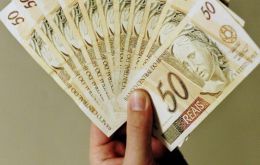
The Brazilian real led losses among Latin American currencies on Monday after an opinion poll showed the market's preferred candidate in October's presidential elections lagging far behind his rivals. The Real was down 0.76% and 15.98% in the eight months of the year.
-
Friday, June 8th 2018 - 08:35 UTC
Temer denies any risk of a currency crisis; Central bank pledges “all the necessary liquidity”
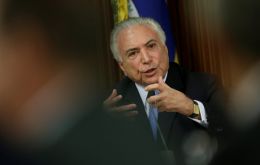
Brazilian President Michel Temer said on Thursday there was no risk of a currency crisis in Latin America's largest economy despite sharp falls in the exchange rate, while the central bank chief pledged to maintain the bank's intervention in the market.
-
Thursday, June 7th 2018 - 09:04 UTC
Brazilian currency falls amid rising investor worries and political turmoil
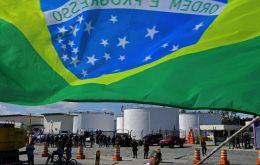
The Brazilian currency has fallen to its lowest level against the dollar in more than two years, amid rising investor worries over recent economic and political turmoil. The Real is down 14% this year, near its lowest levels since March 2016. On Wednesday in New York, the dollar bought 3.8534 Reais, versus 3.8087 Reais late Tuesday.
-
Monday, June 4th 2018 - 08:13 UTC
Brazilian manufacturing activity slows down for second month in May
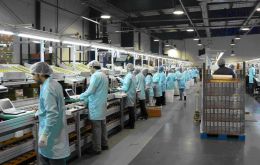
The growth of manufacturing activity in Brazil slowed for a second straight month in May, a private survey showed on Friday, a sign that a weaker currency and political uncertainty are taking a toll on Latin America's largest economy.
-
Saturday, May 19th 2018 - 09:43 UTC
Why the high unemployment rate in Brazil is going down
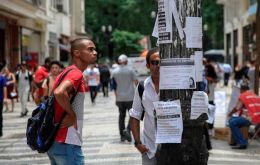
The number of people living in Brazil in a state of helplessness has reached record levels and has actually contributed to the reduction of the unemployment rate over the past 12 months. As the first quarter of 2018 came to an end, 4.6 million people found themselves in a state of helplessness – an increase of 511 thousand people over the course of one year.
-
Thursday, May 17th 2018 - 09:22 UTC
Temer claims that in two years his administration has takes Brazil out of recession
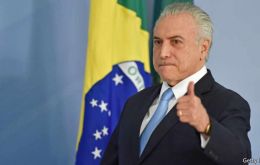
Brazilian President Michel Temer said this week that his administration has taken the country out of debt and successfully overcome the brutal economic recession of the past two years.
-
Monday, April 23rd 2018 - 08:37 UTC
Speed of recovery, the main debate on the Brazilian economy

Brazil's policy makers welcomed an upward revision of the country's growth by the International Monetary Fund, while downplaying the fact its estimate remains lower than others.
-
Friday, December 15th 2017 - 14:53 UTC
Brazilian beef exporters expect a record year in 2018: 1.68 million tons
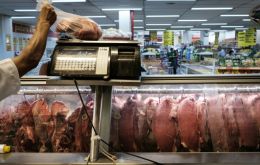
Brazilian beef exporters expect shipments to grow 10% in 2018 after rising an estimated 9% this year despite corruption and food safety scandals that temporarily closed off major markets. Trade group Abiec on Thursday said Brazil, the world’s largest beef exporter, would likely sell 1.68 million tons of beef abroad next year, up from 1.53 million tons in 2017. Revenue is expected to rise about 11% to US$6.9 billion in 2018, after a 13% rise this year to US$6.2 billion.
-
Tuesday, April 2nd 2013 - 05:42 UTC
Agriculture should help boost the Brazilian economy to 3.1% growth in 2013
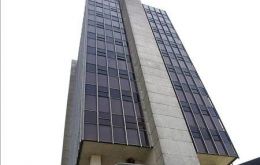
The Brazilian economy is expected to grow 3.1% this year while inflation will reach 5.7% according to the latest estimates from the Central bank released in its “Quarterly inflation report”. In the previous report at the end of last year inflation was estimated at 4.8% but there was no figure for growth.
-
Thursday, December 13th 2012 - 07:23 UTC
Rousseff warns austerity measures alone are not sufficient to address economic crises
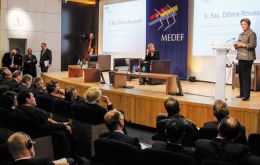
Brazilian president Dilma Rousseff criticized in Paris policies that are limited to austerity when facing crises because they are not effective in economic terms and only generate ‘more recession and unemployment”.
